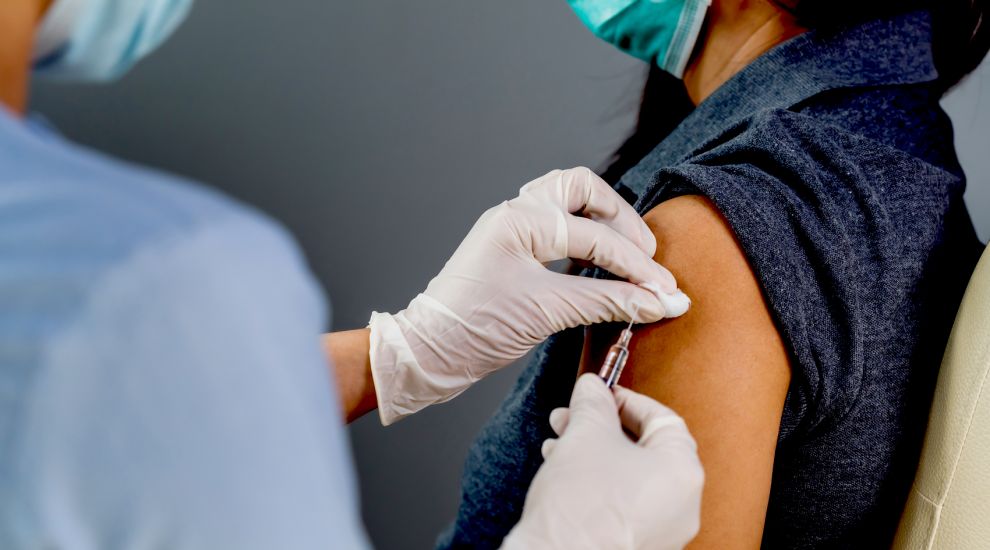


The news recently, in both the UK and the Channel Islands, has been focusing on the Indian Variant of covid-19. The reason this threat has come to such prominence is timing: it emerged and started spreading just as restrictions are being lifted.
All over the UK, people will be sharing indoor space, gathering in larger groups and even hugging. This, coupled with the sharp rise in numbers in various locations in the UK mean that there is a very real threat that anyone of us could be exposed to a person who has this strain.
This risk of exposure includes Jersey. From 28 May the rules for travelling from the UK to Jersey will be updated to re-classify all of England, Scotland and Wales as a single region.
The Indian (or B.1.617) Variant contains two key mutations to the outer spike portion of the virus that attaches to human cells. This made it classified by the World Health Organisation as "of concern", as it makes this strain much more transmittable. Previously the Kent (or B117) variant was recognised as being one of the most highly transmissible strains discovered. To give some scale, the Indian variant is 1.5 time more transmissible than the Kent variant.
A recent Oxford University study has confirmed current coronavirus vaccines work very well against the Indian variant as both the AstraZeneca and Pfizer doses create enough antibodies to neutralise the highly contagious Indian strain and significantly diminish the risk of hospitalisation and death.
The AstraZeneca 'ChAdOx1 nCoV-19' vaccine was developed by the University of Oxford and AstraZeneca. The vaccine works by delivering the genetic code of the SARS-CoV-2 outer spike protein to the body’s cells. It does not deliver the virus itself.
Once inside the body, the spike protein is recognised by the immune system which then initiates an immune response. This means that if the body later encounters the spike protein of the covid-19 coronavirus, the immune system will recognise it and destroy it before causing infection.
This vaccine has not been rushed through as some people suspect but uses the existing ‘ChAdOx1’ technology, which has been developed and optimised by the Jenner Institute over the last 10 years. This type of vaccine technology has been tested for many other diseases such as influenza (flu) and middle east respiratory syndrome (MERS) - which are all types of coronaviruses.
This approved covid-19 vaccine has gone through exactly the same level of regulation. The speed of its development is based on a number of enablers, such as being based on the technology of existing and well established vaccines as well as that different phases of the clinical trial were delivered to overlap instead of running sequentially. There was also a rolling assessment of data packages as soon as they were available. This meant that the MHRA could review the results as the trial was being delivered and ask questions along the way (request extra information as needed), as opposed to getting all information at the end of a trial which is how these trial were previously conducted. Finally, clinical trials managed to recruit people very quickly as a global effort which meant thousands of people were willing to volunteer.
Many sufferers of covid-19 are asymptomatic and experience no symptoms but some require hospitalisation. But there is also an increasing number who are found to suffer from ‘Long Covid’. This can disable sufferers with fatigue, palpitations, chest pains, muscle & joint pain and even brain disabilities. Any one of us unlucky enough to end up with Long Covid risk being long-term ill enough to threaten their career and income, as well burdening their partner with their care, an area I am sadly all too familiar with.
Given that practically all the new infections reported in these Indian Variant spikes are amongst the un-vaccinated, I would urge those who have yet to take up the offer of a jab to seriously consider getting vaccinated as soon as possible. Governments are trying to speed up the roll out of the vaccine because the Indian variant requires the recipient to have received both doses to be protected from this terrible strain. Given that there are some weeks between jabs and that even the first jab takes three weeks to offer meaningful protection, then the urgency becomes clear.
There are many reason people opt not to get vaccinated, but if you’re not vaccinated, and it’s primarily that you don’t trust or understand it, then I hope this goes some way to alleviate your concerns and reconsider.
Daniel Ray-Marks
Albert Road, St. Saviour